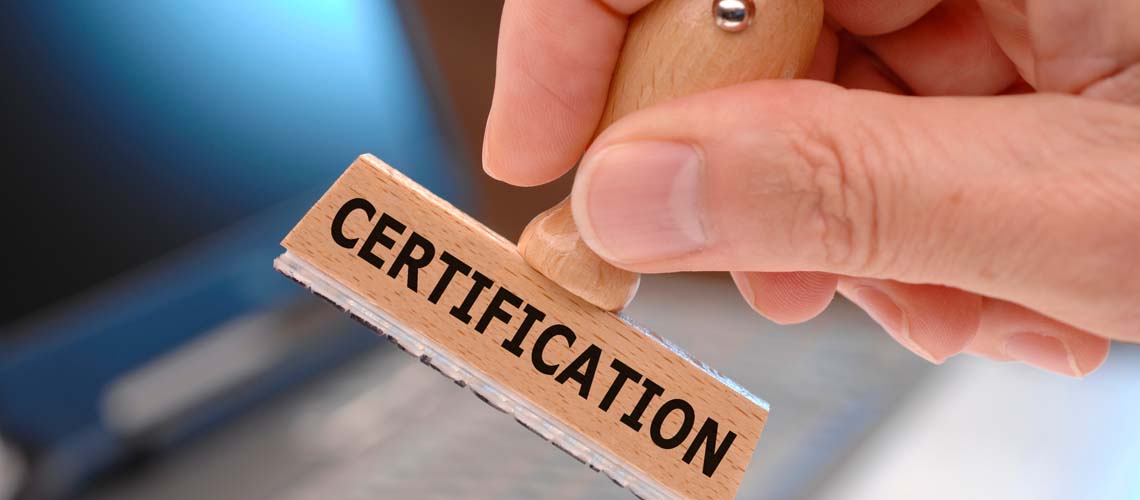ISO 17025 Laboratory Accreditation Compliance Testing
The ISO/IEC 17025 accreditation is a globally recognized standard that ensures laboratories meet the highest levels of quality and competence in their testing and calibration services. This certification is essential for organizations that need to demonstrate compliance with regulatory requirements and provide reliable, accurate test results.
ISO 17025 accreditation involves rigorous evaluation by independent bodies who assess various aspects of a laboratory's operations including: proficiency in methods used, proficiency of staff, quality assurance systems, facilities and environment, equipment calibration and maintenance, and the ability to consistently produce valid data.
To achieve ISO 17025 compliance, laboratories must undergo a detailed audit process that includes an initial assessment followed by periodic reviews. These audits cover all operational areas such as personnel qualifications, management systems, testing procedures, and more. The auditor will review documentation, observe processes in action, and interact with staff to ensure the laboratory meets all specified criteria.
Compliance with ISO 17025 is particularly critical for healthcare organizations where accurate diagnostics play a crucial role in patient care. Inaccurate or non-compliant test results can lead to misdiagnosis, unnecessary treatments, and even life-threatening errors. By adhering strictly to the standards outlined in this certification, laboratories ensure they maintain high standards of reliability and precision.
The process of attaining ISO 17025 involves several key steps: initial application, technical review, on-site assessment, corrective actions if necessary, final approval, and continuous monitoring. Each stage is designed to ensure that the laboratory's processes are robust enough to withstand scrutiny both domestically and internationally.
Once accredited, laboratories must maintain their adherence to ISO 17025 by undergoing regular internal audits and external surveillance visits every two years. This ongoing commitment ensures sustained excellence in testing methodologies and continuous improvement of operational practices.
- Initial Application: Submit a detailed application form outlining the laboratory's operations, qualifications, and equipment.
- Technical Review: Conducted by an external body to verify compliance with ISO 17025 criteria.
- On-Site Assessment: Involves a team visiting the facility to inspect operational procedures firsthand.
- Corrective Actions: Any deficiencies identified are addressed before final approval.
- Final Approval: Issued upon successful completion of all stages.
Why It Matters
ISO 17025 accreditation is crucial for healthcare laboratories because it ensures consistency and reliability in test results. This standardization is vital for maintaining patient safety and trust, which are paramount in clinical settings.
Compliance with ISO 17025 helps protect the integrity of diagnostic tools by ensuring they function accurately across different environments and conditions. It also fosters a culture of continuous improvement within laboratories, leading to better practices and outcomes for patients.
The accreditation process evaluates not only technical proficiency but also management systems, personnel qualifications, facility standards, equipment calibration, and more. This holistic approach guarantees that every aspect contributing to test accuracy is thoroughly examined and upheld at the highest level.
For healthcare providers, having an ISO 17025-accredited laboratory means they can rely on consistent, accurate results from their tests. This consistency allows for effective decision-making in patient care, whether it involves diagnosing diseases or monitoring treatment progress. It also enhances public confidence in the healthcare system by demonstrating a commitment to excellence and transparency.
In summary, ISO 17025 accreditation is essential for safeguarding patient safety, improving diagnostic accuracy, fostering continuous improvement within laboratories, and enhancing overall trust in clinical testing services.
International Acceptance and Recognition
- United States: Laboratories accredited to ISO/IEC 17025 are recognized by the American Society for Testing and Materials (ASTM) as meeting international standards.
- European Union: Accreditation is accepted across all EU member states, facilitating smoother trade and collaboration among healthcare providers.
- United Kingdom: UKAS (UK Accreditation Service) oversees the accreditation process, ensuring it aligns with international best practices.
- Australia: The National Association of Testing Authorities (NATA) accredits laboratories meeting ISO 17025 requirements.
- New Zealand: Similarly, New Zealand's Standards Association accredits labs to this standard.
- Singapore: Accreditation is recognized by the Standards and Industrial Research Organization of Singapore (SIRIM).
Competitive Advantage and Market Impact
Obtaining ISO 17025 accreditation provides significant competitive advantages for laboratories in the healthcare sector. It signals to stakeholders, including regulatory bodies, clients, partners, and patients, that the laboratory adheres strictly to global standards of quality and reliability.
From a business perspective, this certification can open doors to new markets both locally and internationally where stringent compliance requirements are enforced. For instance, entering international healthcare markets often necessitates meeting ISO 17025 criteria, making accreditation a prerequisite for potential clients or partners.
In terms of patient care, the consistent accuracy provided by an ISO 17025-accredited laboratory can lead to more precise diagnoses and treatments. This enhances the reputation of healthcare providers who partner with such laboratories, thereby attracting more patients and building stronger relationships within the community.
Additionally, compliance with this standard helps in maintaining regulatory approval, which is crucial for ongoing operations and future expansions. It also allows labs to participate in international research collaborations where high standards are required.





